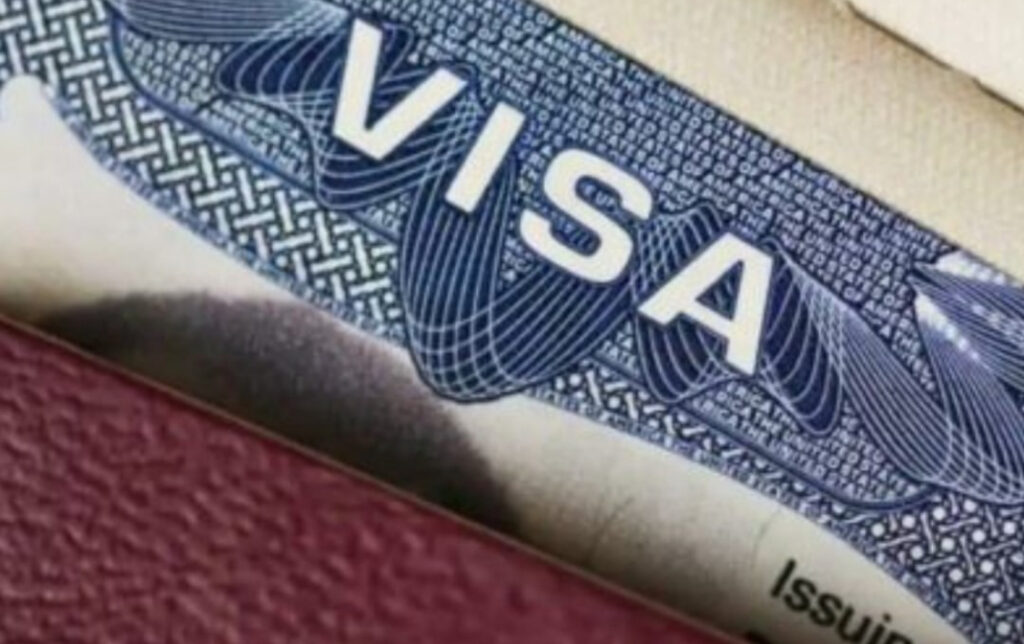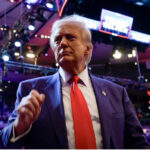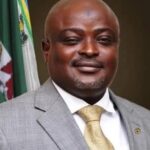The Federal Government of Nigeria has voiced its displeasure over the United States’ newly announced visa policy affecting its citizens, labeling the action as excessive and urging the U.S. to rethink the move in a spirit of cooperation and respect.
This announcement coincides with new, stricter immigration measures from the United Arab Emirates targeting Nigerian travelers, including the outright ban on transit visa processing.
Per updated rules from Dubai authorities, Nigerians aged 18–45 can no longer receive tourist visas unless traveling with others. Applicants 45 years or older must provide a personal six-month bank statement with at least $10,000 as the closing balance each month.
In a similar move, the British High Commission also rolled out new visa procedures for Nigerians applying for study and work permits, signifying a broader shift in international entry policies concerning Nigeria.
On Tuesday, the U.S. Department of State in Abuja stated that as of July 8, 2025, non-immigrant visas such as B1/B2 (business/tourism), F (student), and J (exchange) would be reduced to three-month validity with single entry, prompting an official reaction from Nigeria.
The Foreign Affairs Ministry, through its spokesperson Ebienfa, revealed to Wizopa that the federal government is analyzing the policy’s potential effects and will issue a response after consulting all relevant sectors.
The FG’s formal statement highlighted disappointment over the decision, referencing the long-established cordial relationship between both nations and the impact the decision could have on families, students, and professionals.
While Nigeria respects the right of nations to enforce immigration rules, it appealed for reconsideration to preserve the mutual interests that have historically underpinned U.S.-Nigeria relations. Talks are already underway.
Interior Minister Olubunmi Tunji-Ojo met with U.S. Ambassador Richard M. Mills Jr. to address the situation. Accompanied by top immigration officials, the meeting focused on improving visa procedures and maintaining strong bilateral ties.
Both governments agreed to enhance cooperation in travel documentation, overstaying control, and data exchange. The Ambassador commended Nigeria’s efforts to digitize its visa system, describing it as a key step forward.
The U.S. Embassy explained that these changes stem from a broader global visa reciprocity update and apply only to visas issued from July 8, 2025. Existing visas will remain valid until their expiry dates.
Veteran diplomat Rasheed Akinkuolie described the new U.S. directive as temporary and advised the Nigerian government to mirror the move while keeping diplomatic channels open. He noted that the policy excludes official travelers, a sign that government relations remain intact.
Political analyst Charles Onunaiju linked the policy to growing nationalist sentiments in the U.S., especially under Trump’s influence. He encouraged Nigeria to develop diversified diplomatic partnerships globally rather than relying on one-sided relationships.
On the UAE front, updated guidelines confirm that unaccompanied Nigerian travelers aged 18 to 45 are ineligible for tourist visas. Those above 45 must prove financial stability through detailed bank records and submit the standard documents like hotel reservations and passport data.
In the UK, major changes will take effect from July 15, 2025. Most applicants for study and work visas will be issued eVisas—digital immigration records—replacing physical stickers in passports. Biometric appointments remain mandatory.
According to the BHC, once approved, applicants will receive an email with details on creating a UKVI account to access their eVisa. Visitor visa processes remain unchanged for now.
Gill Obe at the British High Commission assured Nigerians that this transition will simplify travel to the UK, especially for students and professionals, but noted that dependents and visitors will still receive visa vignettes temporarily.
Criticism followed domestically. Labour Party’s Dr. Ayo Olorunfemi blamed Nigeria’s growing isolation on poor leadership and lack of opportunity. He lamented the worsening “Japa” trend driven by economic despair.
The NNPP’s Ladipo Johnson viewed the restrictions as a reflection of Nigeria’s dwindling international reputation. He criticized the FG’s failure to appoint ambassadors and communicate its foreign policy clearly.
Comments by PDP’s Dele Momodu and Buhari-era aide Bashir Ahmad fueled speculation that Nigeria’s global repositioning, including BRICS engagements, may be influencing these diplomatic shifts.
However, Presidential adviser Daniel Bwala rejected the idea of diplomatic fallout, stressing that the U.S. still considers Nigeria a key ally and that internal reviews are underway to resolve the matter responsibly.
SEE MORE TOPICS :
- This Must-Watch Adventure Epic Film Is Breaking the Internet
- United States Reduces Visa Duration for Nigerians to 3 Months




Starting with the U.S., non-immigrant visas—such as B‑1/B‑2, F (student), and J (exchange)—are now limited to single-entry with just three months’ validity, a significant shift from the previous five-year, multiple-entry arrangements. This change stems from a global visa reciprocity review, but Nigeria’s Foreign Affairs Ministry sees it as one-sided, especially given the longstanding ties and people-to-people exchanges between the two countries. Nigeria is urging the U.S. to reconsider in the spirit of mutual respect and cooperation.
Almost in tandem, the UAE has taken equally restrictive steps: transit visas for Nigerian passport holders are now suspended entirely, eliminating a key travel route. Nigerians aged 18–45 are no longer eligible for tourist visas unless accompanied by a sponsor, while those above 45 must now show six months of bank statements with at least USD 10,000 monthly balances.
These simultaneous measures by two key destinations have understandably stirred concern. The Federal Government of Nigeria has launched diplomatic engagements with both countries, with President Tinubu assuring Nigerians that efforts are being made to restore fair access and uphold citizens’ travel rights.